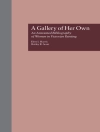This book explores the visual and literary culture of transforming perceptions of children and childhood in France during the long nineteenth century. Charting the developmental period between two moments central to cultural and social understandings of children and childhood, the book’s case studies examine the conceptual and cultural development of children and childhood between the acknowledgement of the child in an Enlightenment context and the avant-garde championing of childhood in the early twentieth century. Recognising this as a crossroads of tradition and modernity, the text demonstrates how artists and writers reflected upon childhood and children as symbolic of both ‘Self’ and ‘Other’, as well as considering the implications for art, society and individual life.
Tabella dei contenuti
Introduction
Elucidating Approaches to the Study
Chapter One
From the Twentieth Century to the Nineteenth Century: A Retrospective of Childhood
Chapter Two
Romantic Enlightenment: The Carte Blanche of Childhood, c. 1750 – 1850
Chapter Three
Negotiating the Dark Underbelly: Children of the Poor, c. 1830 – 1880
Chapter Four
Searching for Solace: Children of the Bourgeoisie, c. 1850 – 1920
Chapter Five
Toy Town Theatre: Material Acculturation and the Child, c. 1870 – 1900
Chapter Six
Breaking the Mould: Burgeoning Cultural Emancipation of the Child, c. 1880 – 1920
Conclusion
Finding the Child Within Us All
Endnotes
Bibliography
Index of Images












